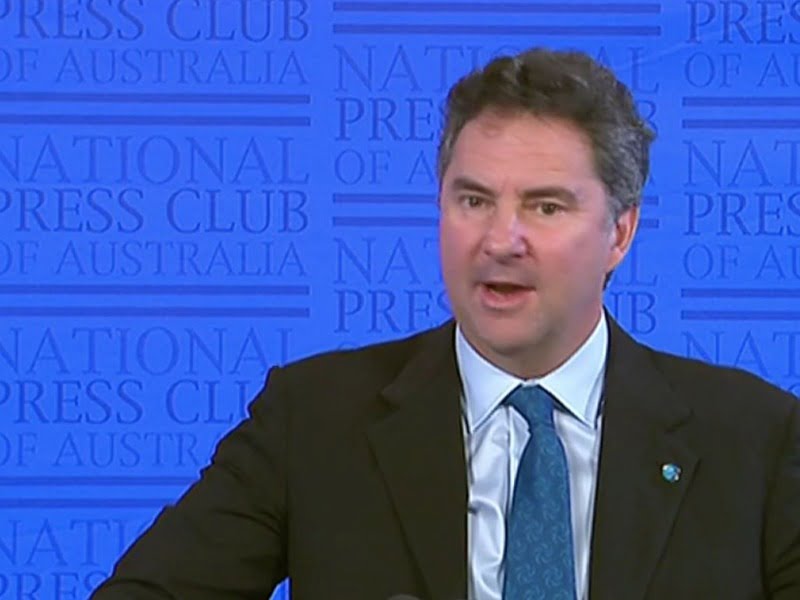At a time when public trust in science is on the rise, CSIRO chief executive Larry Marshall has issued a clarion call to Australia to rally around a set of national missions that aim to solve challenges and improve the translation of research into wealth and jobs.
Dr Marshall leaned on CSIRO’s landmark 2019 Australian National Outlook path to prosperity study to outline a program of missions to accelerate the pace and scale of directed research across Australia, committing at least $100 million annually to the program.
The dozen or so ‘mission’ objectives range from developing and commercialising an Australian hydrogen industry, transforming mineral commodities into high value materials for the energy markets, to moving toward “net zero” future by creating the first net zero emissions region in Australia.

Others included the protection of national waterways; creating a future where protecting the environment “is not just important but profitable”; and where the health and well-being of all Australians is enhanced.
This was a landmark speech for a CSIRO chief, and sharpens the ongoing theme of Larry Marshall’s time at the helm of the national researcher. It was all blue-sky, sure, but the underlying message remains that the science itself is a tool – the focus must be on outcomes that lead to positive impact, new jobs and economic growth.
Speaking at the National Press Club, he said great research is not enough. It must translate into national prosperity and everything that comes with that, and that national missions are the most effective way to direct that research.
“Impact is the key word here, because we can’t stop until we put a real solution into the hands of real people who will use it to solve a real problem,” Dr Marshall said.
“Australia has great research capability and potential to lead in future industries, but we have to get better at translating that research.”
“If we don’t, our science will continue to be a raw commodity, shipped offshore to create wealth and jobs elsewhere.”
This is not a speech that Dr Marshall could likely have made when he arrived at the national researcher in 2015, drawing such direct lines to wealth creation and prosperity. He is doubling down on his own mission to transform the agency, and through bushfires and pandemic 2020 is an opportunity, albeit a dreadful one.
“The last 30 years of economic growth have lulled us into a false sense of security, and over time business investment in R&D has fallen. But there’s nothing like a crisis to snap us back into action,” he said.
“Ironically, this recession may be the greatest opportunity for innovation-led growth we’ve had in decades.”
The ‘missions’ strategy is an acceleration of the broader response to the challenges outlined in the Australian National Outlook. This forecasting document outlined a bright future for the nation if we made the right investments, but also predicted a slow decline of our great industries “if we don’t reinvent them.”
“Our world-class Australian science has been inching us forward in exciting steps for years – but it will take big, bold visions to leap forward and realise the vision of our missions,” Dr Marshall said.
The CSIRO does not propose leading all these missions. The size and scale of each of the challenges require broad collaboration across the innovation ecosystem “to boldly take on challenges that are far bigger than any single institution.”
“We are working with government, universities, industry and the community to co-create and deliver these missions. Some will be led by the CSIRO and some will be led by others, but all will have the collective focus of our science, technology and investment.”
With Science Week set to get underway in Australia, Dr Marshall chose his moment well, although we will have to wait and see what the broader industrial policy looks like in the coming months before we can see whether it really landed with government.
He is right that the CSIRO, which is still very much an institution in transition, cannot do this alone. But the call to arms comes as public support for science continues to rise on the back of a difficult year.
Which does not mean that scientists themselves have not had their jobs impacted by the pandemic.
A snapshot of the impact of the pandemic on scientists’ jobs and wages, a survey by Professional Scientists Australia and Science & Technology Australia found despite their frontline role, scientists had been hit by job losses and wage freezes.
In The Initial Employment Impact Of The Covid-19 Pandemic On Australia’s Science Workforce, scientists reported job losses, pay freezes, changes to job roles, and limitations on their ability to work due to juggling working from home while caring for children.
At the same time, as an indicator of the central role science is playing in Australia’s response to the pandemic, the survey found almost six in 10 scientists said Australians now placed greater value in science and our nation’s professional scientific workforce as a result of the COVID-19 pandemic.
Regardless, Dr Marshall is doubling down during this pandemic on driving a science enabled economic recovery and ongoing resilience. 2020 is an opportunity for Australia.
“This generation is living through a perfect storm of bushfires, pandemic, and recession. Never in our lifetime has a country – or the world – turned to scientists in the way they are now.”
“This is our moment. Our moment in time that will shape our generation. History will judge us by what we do next, and our children will live with the consequences.”
Do you know more? Contact James Riley via Email.

